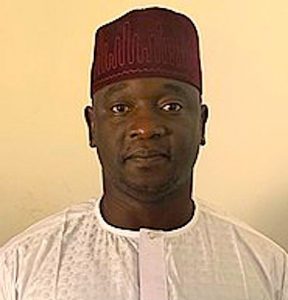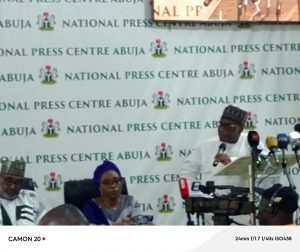Miyetti Allah Has Presented Itself As A Terrorist Organisation – Prof Akintoye

Professor Banji Akintoye says the Miyetti Allah Cattle Breeders Association of Nigeria (MACBAN) has in the recent past presented themselves as a terrorist organisation.
Speaking while appearing as a guest on Channels Television’s News Night, Professor Akintoye said he is shocked that anybody will equate Miyetti Allah with Afenifere, or Ohanaeze or PANDEF.
While reacting to questions regarding the farmers/herders clash in Nigeria, the renowned academic stated that “Miyetti Allah has presented itself as a terrorist organization” adding that “Afenifere is not a terrorist organization, Ohanaeze is not a terrorist organization. PANDEF is not a terrorist organization”.
Professor Akintoye further noted that he is suspicious about the intentions of the Federal Government with regard to the RUGA concept.
READ ALSO: Miyetti Allah Is Like Ohanaeze Ndigbo, Afenifere – Garba Shehu
According to him, it is not a question of presentation, it is a question of the agenda behind all that is happening.
As far as he is concerned, the Federal Government seems these days to be doing nothing more than to think of ways to get the Fulanis to be admitted into lands within the Southern and Middlebelt regions.
Still speaking on the clashes between herders and farmers, Professor Akintoye stated that the Yorubas are not opposed to Fulanis.
He argued that it is in the culture of the Yorubas to welcome people, adding that the Yorubas do not attack strangers on their lands.
“It is a traumatic experience for a Yoruba to raise his hand against visitors on his land,” Akintoye stressed.
Narrating what the relationship used to be in the past, the historian said; “Cattle herders were coming to our farms when I was a child; a peasant farmer’s child.
“We would go to the farm and we see the herder with the cow and we would play with the cattle and he would protect us and tell us not to go too near to them because they could kick you. He was a very nice person. He was not a hostile person who did his work.
“But now, there is an agenda. Not all cattle herders, but some herders come in to deliberately provoke conflicts because behind them are well-trained militias.”
Regarding the issues of restructuring in Nigeria, the revered writer held that Nigeria is a country of nations and not a nation in itself.
He added that each nation within Nigeria deserves to be respected.
For him, the issue of restructuring is a question of responding to the demands of the moment.
“The demands of the moment for Nigeria, if Nigeria is to survive, is to restructure.
“The reason the Northerners, especially the North-West does not accept it, is that power is in their hands.
“They see restructuring as a means of taking power away from them. Why should they support it? They won’t support it.”
As long as he is concerned, the Federal Government is so powerful and they still want more powers.
“It is not a good thing to let this country break up. It would break up if we don’t do something about this in a hurry,” Akintoye warned.
The educationist also spoke about the standard of education in Nigeria.
“We used to be very proud of our education standards in the 1950s and in 1960s’. You are asking me a question that can make me emotional because the educational system has virtually collapsed in Nigeria,” Professor Akintoye opined.
The celebrated academic added that he is very sad about what he sees these days.
“Poverty, disintegration, decline, loss of excellence. That is what I see everywhere: in primary schools, secondary schools, teacher training colleges and especially in universities which is where I know a lot. It is shocking what is happening to our universities,” he stated.
Proferring solutions to the education problem, Professor Akintoye was of the opinion that what Nigeria can do is to establish a national commission charged with the duty of looking at the educational system, describing and identifying the sources of the weakness of the decline and then proposing the solutions that will lead to a change.
He stressed that according to UNESCO, for an educational system in a country to be viable, then the country needs to be spending about 25 percent of its GDP on education.






